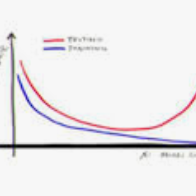The rise of large-scale multimodal models has paved the pathway for groundbreaking advances in generative modeling and reasoning, unlocking transformative applications in a variety of complex tasks. However, a pressing question that remains is their genuine capability for stronger forms of generalization, which has been largely underexplored in the multimodal setting. Our study aims to address this by examining sequential compositional generalization using \textsc{CompAct} (\underline{Comp}ositional \underline{Act}ivities)\footnote{Project Page: \url{http://cyberiada.github.io/CompAct}}, a carefully constructed, perceptually grounded dataset set within a rich backdrop of egocentric kitchen activity videos. Each instance in our dataset is represented with a combination of raw video footage, naturally occurring sound, and crowd-sourced step-by-step descriptions. More importantly, our setup ensures that the individual concepts are consistently distributed across training and evaluation sets, while their compositions are novel in the evaluation set. We conduct a comprehensive assessment of several unimodal and multimodal models. Our findings reveal that bi-modal and tri-modal models exhibit a clear edge over their text-only counterparts. This highlights the importance of multimodality while charting a trajectory for future research in this domain.
翻译:暂无翻译




